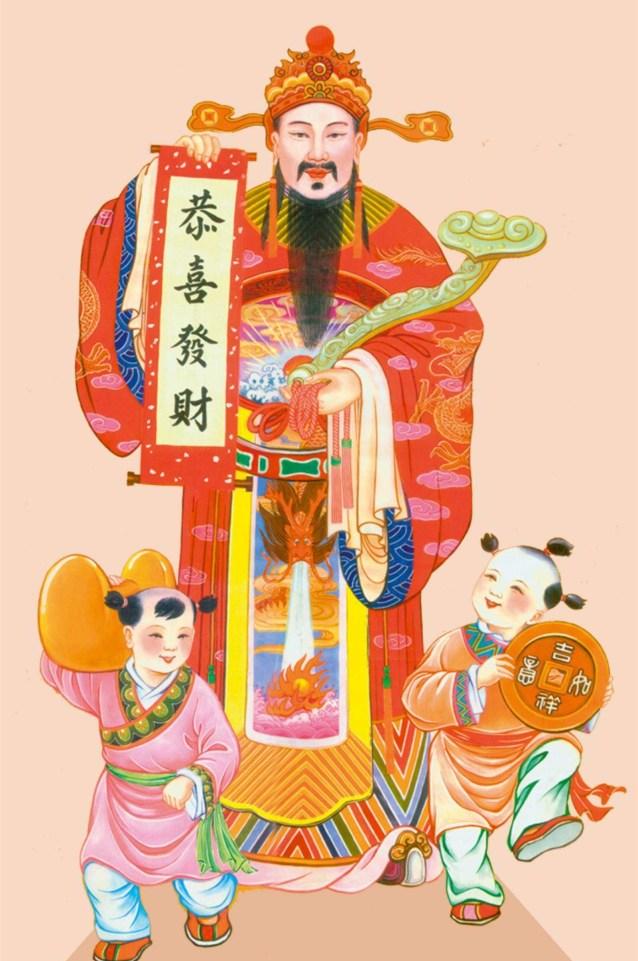After the Spring Festival, from the beginning of the first month of the new month to the Lantern Festival on the fifteenth day of the first month, it is no exaggeration to say that every day is a festival, and each day has a different folk custom. The first day of the first lunar month, the fifth day of the first lunar month, and the fifteenth day of the first lunar month are the three times that the ancestors valued most.
The first day of the first lunar month is the beginning of the new year, so everyone will naturally attach great importance to it, and people will have a lot of taboo customs in order to celebrate the New Year in order to be auspicious. The fifteenth day of the first month is the Lantern Festival, which was called "Shangyuan Festival" in ancient times, and is the first full moon night of the new year, so everyone also attaches great importance to it.

The reason why the fifth day of the first lunar month is valued by people is because there are three important customs on the fifth day of the first lunar month.
First, the fifth day of the first lunar month is the day of breaking the taboo, that is to say, after the beginning of the fifth day of the first month, most of the taboos in the first month will be broken and begin to return to the state of the previous year; second, the fifth day of the first month of the first month is the day of sending the poor, and every household will send away the poor god in the family to welcome the arrival of the god of wealth; the third is that the fifth day of the first month is the birthday of the god of wealth, and everyone will take the god of wealth home on the fifth day of the first month of the first month to pray for wealth and well-being in the new year.
Although the fifth day of the first month is the day of breaking the taboo, the folk also have some customs on this day, such as the old ancestors of the folk have the old tradition of "not going out, not borrowing" on the fifth day of the first month of the first month.
So, what does such a folk custom mean? What does the so-called "one does not go out" and "two do not borrow" refer to?
The so-called "one does not go out" refers to the fact that on the fifth day of the first year, the ancestors had the "no going out" exquisite.
In fact, in many places, not only is it not recommended to go out on the fifth day of the first month, but also from the first day of the first month to the fifth day of the first month, it is taboo for women to go out to visit the door. The ancients called it the "First Moon Taboo Gate".
There is also a saying that because the fifth day of the first lunar month, also known as the "broken five", is the day of the new year every year, so this day there will be a custom of not going out, that is, afraid that going out will be unlucky.
The so-called "two do not borrow" means that on the fifth day of the first lunar month, one does not borrow water, and the other does not borrow fire.
From ancient times, water and fire have been the necessary items for the survival and development of folk ancestors. In ancient times, people lived by water, and water was the source of life; at the same time, after "fire", people were completely distinguished from animals. Moreover, water and fire are both indispensable to life and the greatest threat to life.
At the same time, it is precisely because of the importance of water and fire that people have given water and fire different cultural connotations.
Take "water", for example, the folk think of "water pipe wealth", so many people will see "water" as a symbol of "wealth"! The old ancestor believed that the water could not be lent out on the fifth day of the first lunar month, otherwise it would be to lend out his own fortune. The reason why you can't borrow fire is also because "fire" is a symbol of incense and luck, and there is even a folk saying that "summer does not borrow fan and winter does not borrow fire".
The so-called "two do not borrow", do not borrow water, do not borrow fire, because water and fire represent different cultural connotations. Sending water and fire means giving away one's own wealth. Therefore, everyone naturally will not borrow water or fire on the fifth day of the first lunar month!
Although the fifth day of the first lunar month is the day of "breaking the fifth", often everyone will lift some customs in the first month after the fifth day of the first lunar month.
These folk customs and cultures, in the final analysis, are all to pray for a good life in the new year, but also to pray for the Year of the Tiger to have a wide range of wealth and wealth for a whole year!